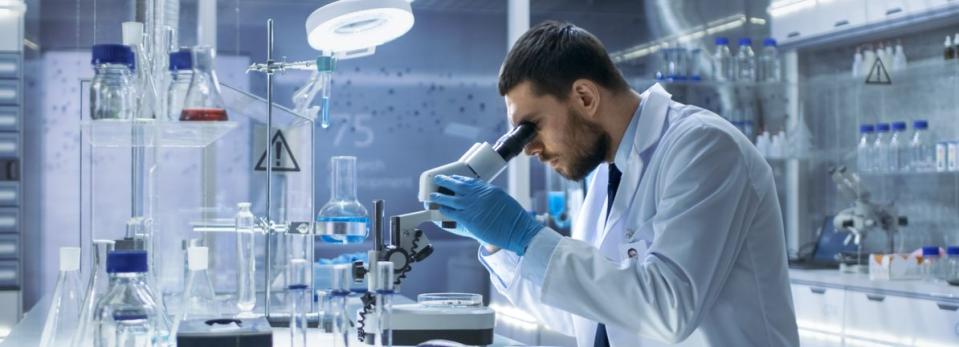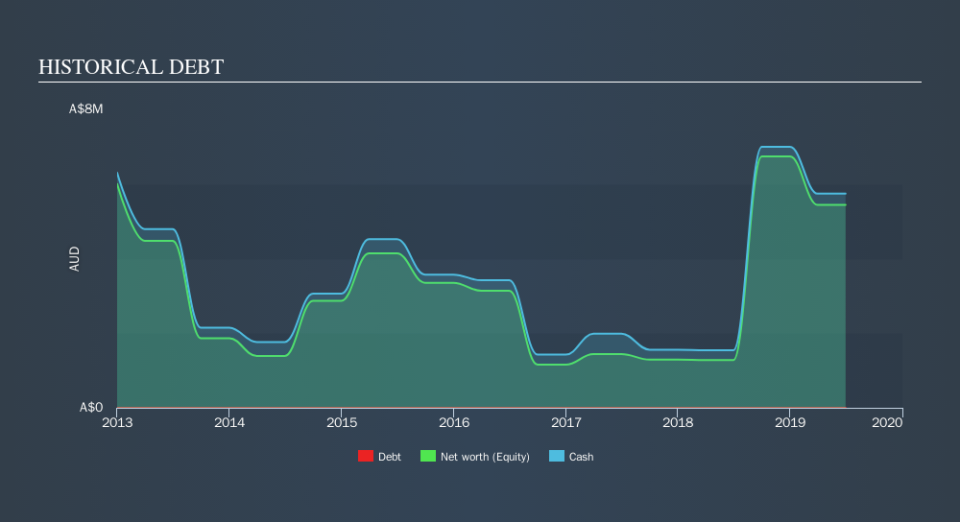Those Who Purchased Biotron (ASX:BIT) Shares A Year Ago Have A 74% Loss To Show For It

As every investor would know, you don't hit a homerun every time you swing. But it should be a priority to avoid stomach churning catastrophes, wherever possible. We wouldn't blame Biotron Limited (ASX:BIT) shareholders if they were still in shock after the stock dropped like a lead balloon, down 74% in just one year. That'd be enough to make even the strongest stomachs churn. The silver lining (for longer term investors) is that the stock is still 58% higher than it was three years ago. Furthermore, it's down 14% in about a quarter. That's not much fun for holders.
See our latest analysis for Biotron
With just AU$1,072,832 worth of revenue in twelve months, we don't think the market considers Biotron to have proven its business plan. This state of affairs suggests that venture capitalists won't provide funds on attractive terms. So it seems shareholders are too busy dreaming about the progress to come than dwelling on the current (lack of) revenue. For example, they may be hoping that Biotron comes up with a great new product, before it runs out of money.
As a general rule, if a company doesn't have much revenue, and it loses money, then it is a high risk investment. There is almost always a chance they will need to raise more capital, and their progress - and share price - will dictate how dilutive that is to current holders. While some such companies do very well over the long term, others become hyped up by promoters before eventually falling back down to earth, and going bankrupt (or being recapitalized). It certainly is a dangerous place to invest, as Biotron investors might realise.
Biotron has plenty of cash in the bank, with cash in excess of all liabilities sitting at AU$5.3m, when it last reported (June 2019). This gives management the flexibility to drive business growth, without worrying too much about cash reserves. But since the share price has dropped 74% in the last year , it seems like the market might have been over-excited previously. The image below shows how Biotron's balance sheet has changed over time; if you want to see the precise values, simply click on the image. You can click on the image below to see (in greater detail) how Biotron's cash levels have changed over time.
It can be extremely risky to invest in a company that doesn't even have revenue. There's no way to know its value easily. Given that situation, would you be concerned if it turned out insiders were relentlessly selling stock? I would feel more nervous about the company if that were so. It costs nothing but a moment of your time to see if we are picking up on any insider selling.
What about the Total Shareholder Return (TSR)?
We've already covered Biotron's share price action, but we should also mention its total shareholder return (TSR). Arguably the TSR is a more complete return calculation because it accounts for the value of dividends (as if they were reinvested), along with the hypothetical value of any discounted capital that have been offered to shareholders. Biotron hasn't been paying dividends, but its TSR of -74% exceeds its share price return of -74%, implying it has either spun-off a business, or raised capital at a discount; thereby providing additional value to shareholders.
A Different Perspective
Biotron shareholders are down 74% for the year, but the market itself is up 16%. Even the share prices of good stocks drop sometimes, but we want to see improvements in the fundamental metrics of a business, before getting too interested. Unfortunately, last year's performance may indicate unresolved challenges, given that it was worse than the annualised loss of 3.5% over the last half decade. We realise that Buffett has said investors should 'buy when there is blood on the streets', but we caution that investors should first be sure they are buying a high quality businesses. Before spending more time on Biotron it might be wise to click here to see if insiders have been buying or selling shares.
But note: Biotron may not be the best stock to buy. So take a peek at this free list of interesting companies with past earnings growth (and further growth forecast).
Please note, the market returns quoted in this article reflect the market weighted average returns of stocks that currently trade on AU exchanges.
We aim to bring you long-term focused research analysis driven by fundamental data. Note that our analysis may not factor in the latest price-sensitive company announcements or qualitative material.
If you spot an error that warrants correction, please contact the editor at editorial-team@simplywallst.com. This article by Simply Wall St is general in nature. It does not constitute a recommendation to buy or sell any stock, and does not take account of your objectives, or your financial situation. Simply Wall St has no position in the stocks mentioned. Thank you for reading.

 Yahoo Finance
Yahoo Finance 
